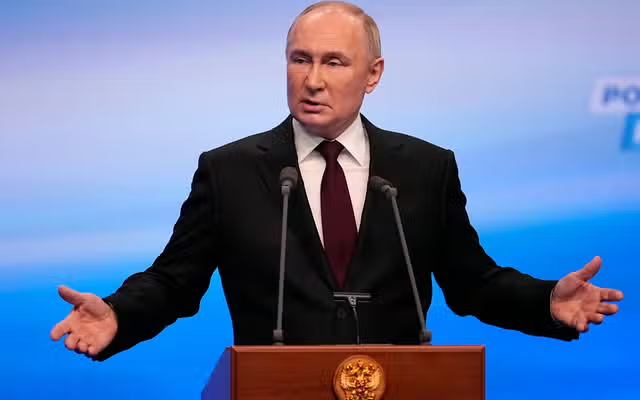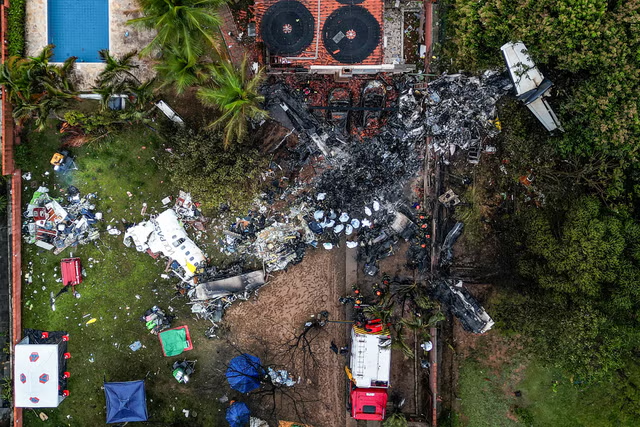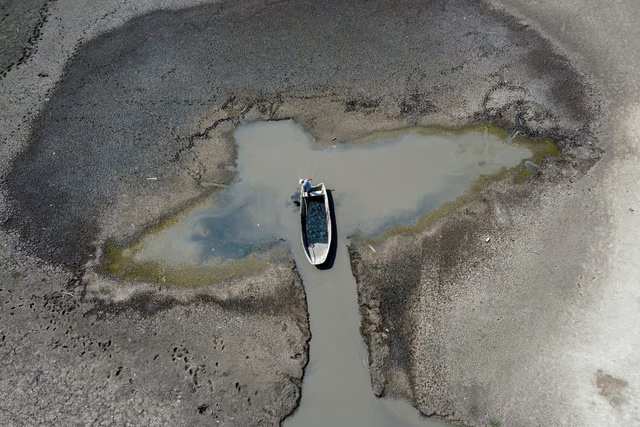Ukraine halted Russia's offensive in Pokrovsk on Thursday and has regained control of part of the Ukrainian town of New-York, also spelled Niu-York, according to the Institute for the Study of War.
On X, formerly Twitter, the policy research organization, which focuses on advancing an understanding of military affairs, posted maps showing the assessed control of terrain east of Pokrovsk and around Toretsk as of the late afternoon on September 5.
In an interview with CNN, Oleksandr Syrskyi, the commander in chief of the Armed Forces of Ukraine, confirmed that Russia did not advance in Pokrovsk on Thursday.
"Over the last six days the enemy hasn't advanced a single meter in the Pokrovsk direction," he told the outlet.
Syrskyi also said the city of Pokrovsk had been under pressure, as it was the hot spot for military action in Ukraine for weeks.
Newsweek has contacted the Ukrainian Ministry of Defense and the Southern Military District, part of the Russian Defense Ministry, for comment via email.
Russia made strong advances in the Donetsk region in August, gaining 93 square miles, an exponential increase compared to previous average advances this year, as Newsweek previously reported—with previous months maintaining a 21-square-mile advancement.
This apparent halting of advancements in Pokrovsk is significant, as it is a road and rail hub that is essential to Ukraine's ability to send military materials to other outposts in the region.
Angelica Evans, a Russia researcher at the Institute for the Study of War, spoke with Newsweek about the implications of advancement in Pokrovsk and regaining part of New-York for both Ukraine and Russia.
"Russian advances in the Pokrovsk direction are critical to the Kremlin's long-term informational efforts to convince the Russian public—and the international community—that Russia's large-scale personnel losses and ineffective attritional style of warfare are effective and justified," she said.
Evans continued, "Ukraine's ability to slow Russian advances, and even stop Russian advances in some areas of Donetsk Oblast and Ukraine, directly undermines this effort and generates counterfactual evidence that Ukraine—when properly resourced—can halt Russian offensives and that Russian victory is not inevitable despite Russia's resource advantages."
She added that Ukraine's defensive operations in Pokrovsk and the wider Donetsk region complicate the Kremlin's objective to "seize the remainder of Donetsk and Luhansk oblasts" and effectively "erode the Russian people's willingness to support a highly attritional protracted war indefinitely."
Evans said Russian authorities have been hesitant to redeploy forces in Kursk Oblast, which has allowed Ukrainians to "create and maintain the salient" there.
She said the Institute for the Study of War has observed indications that Russia has "redeployed limited elements—at least one company—likely of reserve personnel intended to support operations near Pokrovsk to Kursk Oblast to defend against the Ukrainian incursion."
"This limited redeployment indicates that Russia hasn't been able to isolate even its most priority offensive operation from the theater-wide impacts of the Kursk incursion," Evans continued.
She added: "Recent reported Ukrainian tactical advances in Niu-York support Ukraine's effort to defend against Russian offensive operations near Toretsk—another key frontline city that the Russians seek to seize. Ukrainian forces' recapture of tactical territory in Niu-York help alleviate pressure from Toretsk's southern flank and complicate Russian efforts to envelop the city."
Syrskyi told CNN his focus is to recruit new soldiers, as Russia has the advantage in "aviation, in missiles, in artillery, in the amount of ammunition they use, of course, in personnel, tanks, infantry fighting vehicles."
The commander also said that in halting Russia's advancement in the region, the Ukrainian military sent tens of thousands of soldiers to the Russian territory Kursk to prevent Russia from using it as a new offensive base.
Although Russian troops did not advance in Pokrovsk, maps from the Institute for the Study of War indicated that they advanced south of Novohrodivka and west of Mykolaivka on September 4.
The maps also indicated that the troops advanced to the west of Krasnohorivka on September 1 and in southwestern Halytsynivka on September 3, where Russian troops said they seized land, the Institute for the Study of War reported.
According to the organization, Russian sources said they advanced southeast of Toretsk on September 2, and troops reportedly advanced into northwestern Druzhba the following day.
In Kursk, Kyiv reported that it controlled about 500 square miles of territory as of September 2.
Syrskyi told CNN that he viewed the Kursk operation as a success. He said: "It reduced the threat of an enemy offensive. We prevented them from acting. We moved the fighting to the enemy's territory so that [the enemy] could feel what we feel every day."
Do you have a story we should be covering? Do you have any questions about this article? Contact LiveNews@newsweek.com.
Disclaimer: The copyright of this article belongs to the original author. Reposting this article is solely for the purpose of information dissemination and does not constitute any investment advice. If there is any infringement, please contact us immediately. We will make corrections or deletions as necessary. Thank you.



